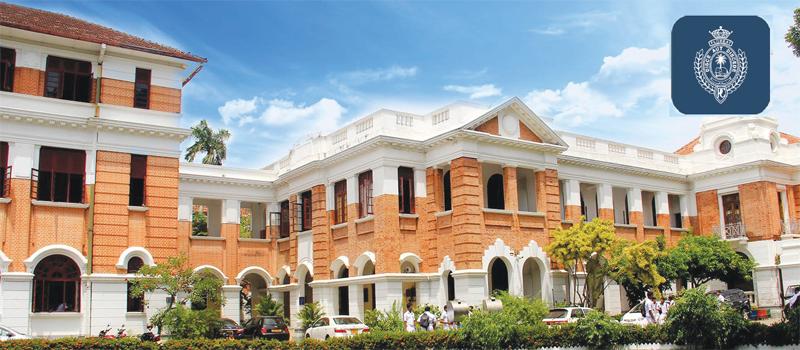
My alma mater Royal College Colombo, is also known as the ‘Eton of Sri Lanka, At first, in 1835 it was a private school called ‘The hill Street Academy’ and was founded by Rev. Joseph Marsh. ‘Hill Street Academy’ had about 20 pupils at the beginning.
Later it was developed into the ‘Colombo Academy’ by the then British Governor, Sir Robert Wilmot Horton in 1836. In 1842, when Rev. Dr. Barcroft Boake took over as Principal, he created a new school called ‘Queens College’ to prepare the older students before they enter the University.
After Rev. Dr. Barcroft Boake George Todd became the Principal. Her Majesty, Queen Victoria of England renamed the ‘Colombo Academy ’ as Royal College. In 1927, Major H.L. Reed composed The School of Our Fathers which is the school song. Our school anthem has many morals which helps to achieve our goals. Royal College was used as a hospital for soldiers during World War II. The ‘Quadrangle’ be the place where soldiers camped. Even today, you can see the hospital markings in our school.
‘Boake Gates’
The ‘ Boake Gates’ were built to remember Rev. Dr. Barcroft Boake and is a symbol of the traditions and culture of Royal College. My schools motto is Disce Aut Discede which means 'Learn or Depart'.
Over the years many students have worked their way up to the highest positions in many fields. They have become leading doctors such as Sir Nicolas Attygalle, leading politicians such as J. R. Jayewardene, and leading sportsmen like Ranjan Madugalle to name a few. One of the first swimming pools was the Royal College swimming pool, which was opened by Prime Minister Dudley Senanayake in 1968. He also opened one of the biggest theatres in Sri Lanka called the Navarangahala within our school premises. There are five houses in Royal College named after past principals. They are Reed, Hartley, Marsh, Harward and Boake. Our sports meet is one of the biggest events in the school calendar.
‘Battle of the Blues’
The ‘Battle of The Blues’ is a very special cricket match between Royal College Colombo and S.Thomas’ College, Mount Lavinia, which started in 1879. It is the world’s longest consecutively played encounter in any sport. The 141st encounter was played in 2020. It is called the ‘Battle of The Blues’ because of the colour of the school flags. Up to now, Royal College has had 35 wins.
‘Bradby Shield’
In 1916, Principal E.L Bradby started rugby at Royal College in 1920, the ‘Bradby Shield’ was awarded for the rugby match between Royal College, Colombo and Trinity College, Kandy. This encounter is played over two legs and is the highlight of the school rugby calendar.
Royal College has a great history in rugby and has dominated Sri Lanka schools’ rugby over the years and has won the schools’ rugby league for the past three consecutive years. Royal College also has tennis, basketball, football, volleyball, swimming and many more sports. There is a new, annual swimming meet between Royal College and S.Thomas’ College for which offers the the Dr. J. Gunasegaram Trophy. The inaugural meet was started in 2009 and I am proud to have been a part of it.
The Royal College Orchestra was formed in 2003 by students who loved music. Initially, it had a small number of students and had small performances at the school. One of its major performances was at a farewell ceremony for one of our Principals and at a welcome ceremony for the the incoming Principal.
The Royal College Orchestra participated in an all island competition, and was awarded the runner-up position. Every year at Royal College, there is an event called ‘Band Fiesta’ where the Western and Eastern bands and orchestras perform.
Royal College is accepted as the largest public school in Sri Lanka with around 8,300 pupils. I love my school and am very proud to be a Royalist.
I wish my school all success in the future and pray that it will continue to produce valuable citizens for our country.
By Anaka Asala Attygalle
11 years, Grade 7
Royal College, Colombo.
